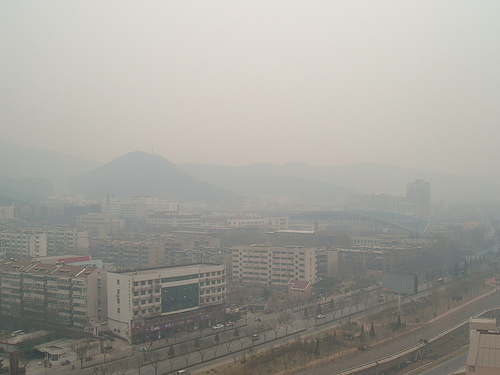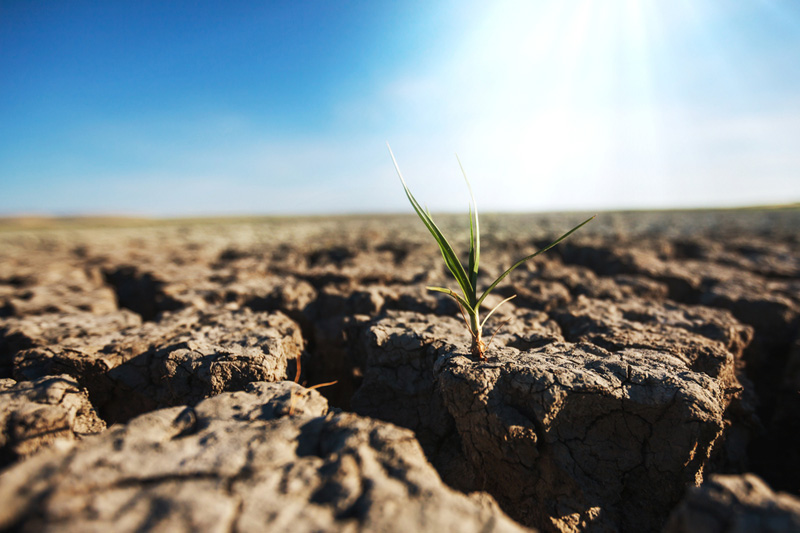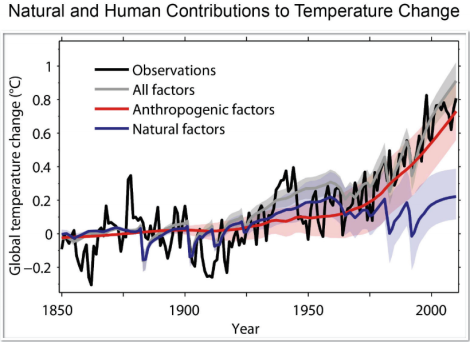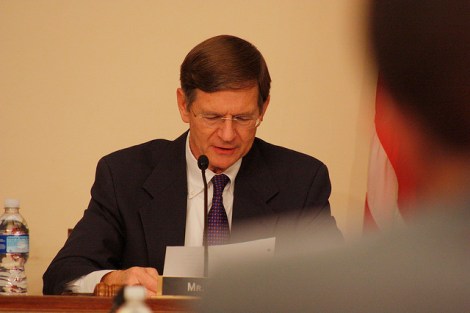
ryanjreillyRep. Lamar Smith, pictured here probably thinking about science.
We’ll admit, we were skeptical when we heard that Rep. Lamar Smith (R-Texas) would be taking over as chair of the House Science committee. This is the guy, after all, who in 2009 awarded major news networks a “Lap Dog Award” for covering climate change. (Lap dogs are known for reporting demonstrably true news.)
Smith has big plans once he takes the reins, including getting to the bottom of this “climate change” thing. The Dallas News reports:
The Texan who just took over as chairman of the House Science Committee, Rep. Lamar Smith, R-San Antonio, plans a fresh assessment [of climate change], with a hearing in coming weeks on the current state of the environment, according to a committee aide.
“I believe climate change is due to a combination of factors, including natural cycles, sun spots, and human activity. But scientists still don’t know for certain how much each of these factors contributes to the overall climate change that the Earth is experiencing,” Smith said through an aide. “It is the role of the Science Committee to create a forum for discussion so Congress and the American people can hear from experts and draw reasoned conclusions. During this process, we should focus on the facts rather than on a partisan agenda.”
Man. Great idea, Rep. Smith. Really. Let’s cut through the partisan bullshit and figure out what’s really going on with the climate. Let’s hold hearings! What could be more effective than that?
Well, maybe that just-released 1,200-page report on the climate change effects likely to hit the U.S. over the course of this century. A report years in the making that involves reams and reams of scientific data and research from 300 government and independent scientists. A report drafted by an agency created by Congress. A report that is categorical in its assessment that climate change is real, is happening, and promises to radically shift the country’s environment.
Perhaps a quick peek can answer some of your questions, Rep. Smith! For example, the claim that “scientists still don’t know for certain how much [natural] factors contribute to the overall climate change.” Well, they actually do. It’s this much:
As the report states:
Scientists are continually designing experiments to test whether observed climate changes are unusual and what the causes of these changes may be. This field of study is known as “detection and attribution.” Detection is simply looking for evidence of unusual changes or trends. Attribution attempts to identify the causes of these changes from a line-up of “prime suspects” that include changes in energy from the Sun, powerful volcanic eruptions, or human emissions of heat-trapping gases.
Such studies have clearly shown that human activities are primarily responsible for recent climate changes. Detection and attribution analyses have confirmed that a wide variety of recent changes (see CAQs C and H) cannot have been caused either by internal climate system variations or by solar and volcanic influences alone. Human influences on the climate system — including heat-trapping gas emissions, atmospheric particulates, land-use and land-cover change — are required to explain recent changes.
That’s a government report answering your question. So we can scratch that one off the list of questions at the hearing, no?
Maybe you’re curious about what the future has in store for your very own 21st district of Texas? Well, the scientists — including some from the University of Texas! — have an answer for that one, too. [PDF]
Let’s look at water, for example, given the state’s recent history of severe drought.
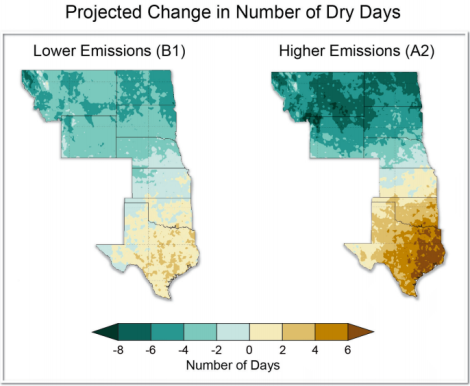
Increase in dry days in Texas, per the same congressionally mandated government report. Click to embiggen.
Days with little or no precipitation will also be less common in the north, with projections of up to 5 fewer such days. By contrast, large parts of Texas and Oklahoma are projected to see more days with no precipitation (up to 5 more days with little or no precipitation) in the same timeframe …
The trend toward more dry days and higher temperatures across the south will increase evaporation, decrease water supplies, reduce electricity transmission capacity, and increase cooling demands. These changes will add stress to limited water resources and affect management choices related to irrigation, municipal use, and energy generation. …
Increased drought frequency and intensity can turn marginal lands into deserts. Reduced per capita water storage will continue to increase vulnerability to water shortages (Texas Water Development Board 2012).
More desert, predicts a Texas agency. Does that help answer your questions, Rep. Smith? If not, please don’t hesitate to peruse the government’s full report. It really should be able to answer all of your questions. You can say a lot more over the course of 1,200 pages than you can during a three-hour hearing.
After all, as your staff so rightly notes, the last thing we’d want is to sacrifice facts to some nefarious “partisan agenda.” As the only member of Congress willing to stand up to the media’s bias, we know that we can count on you for objectivity.
